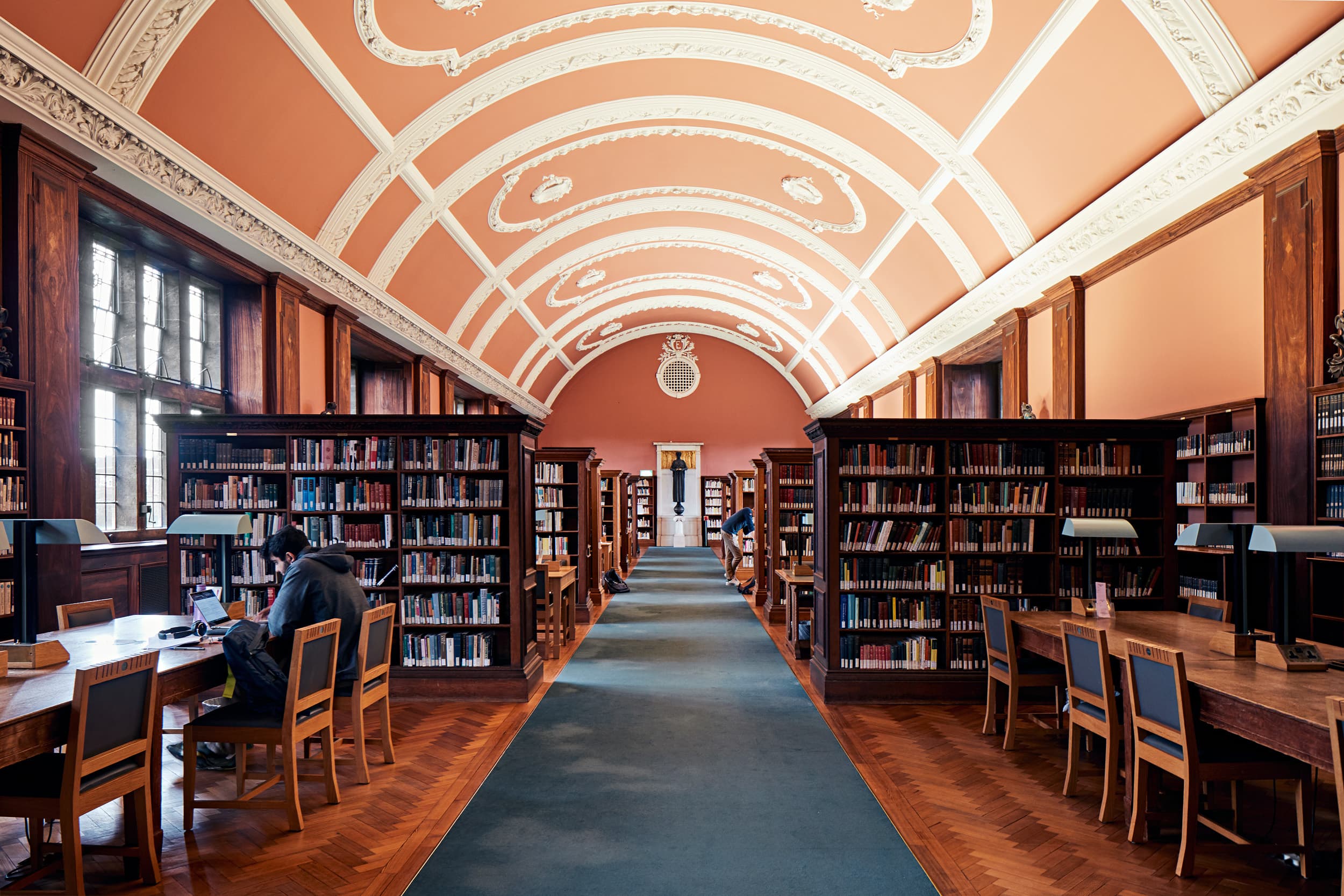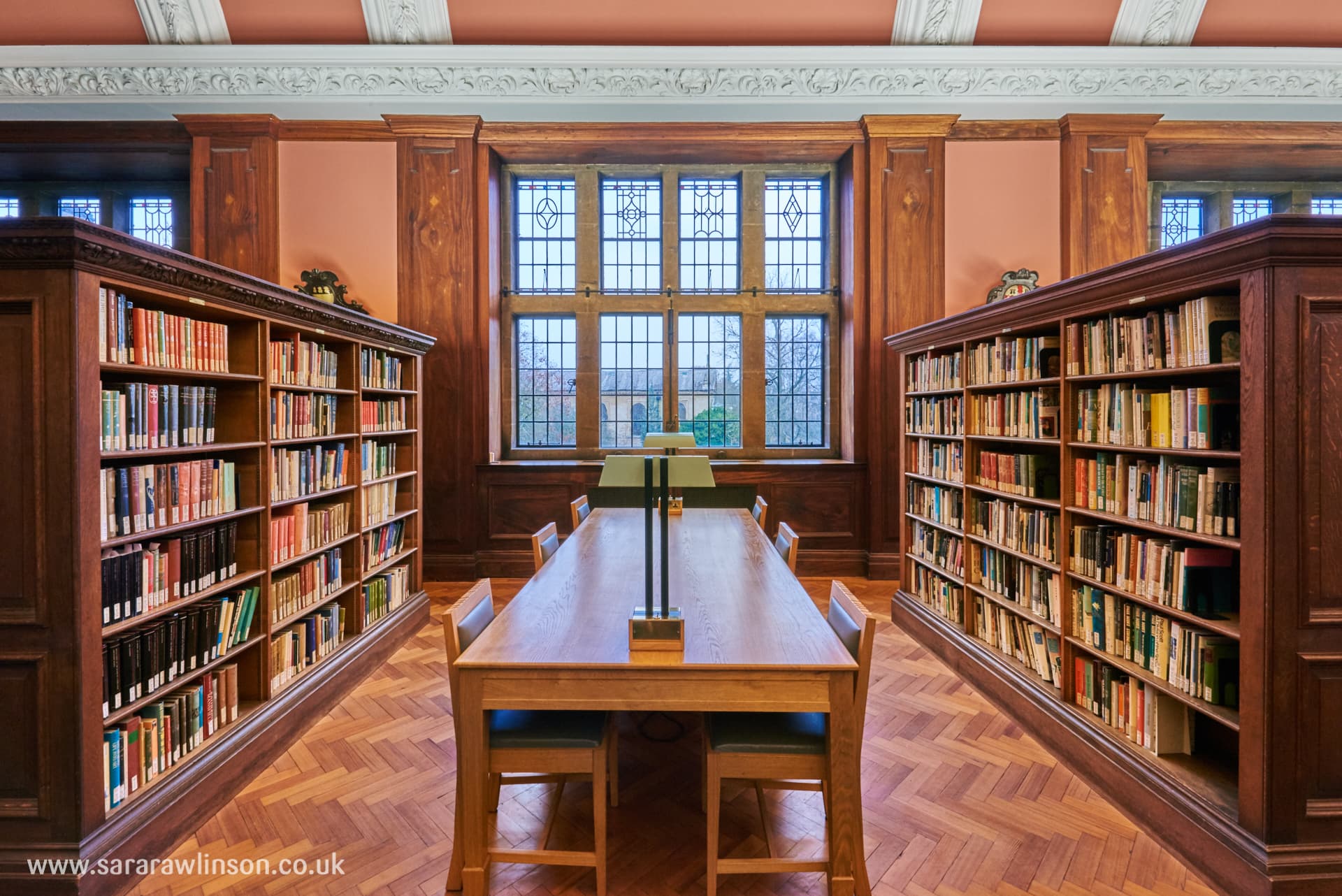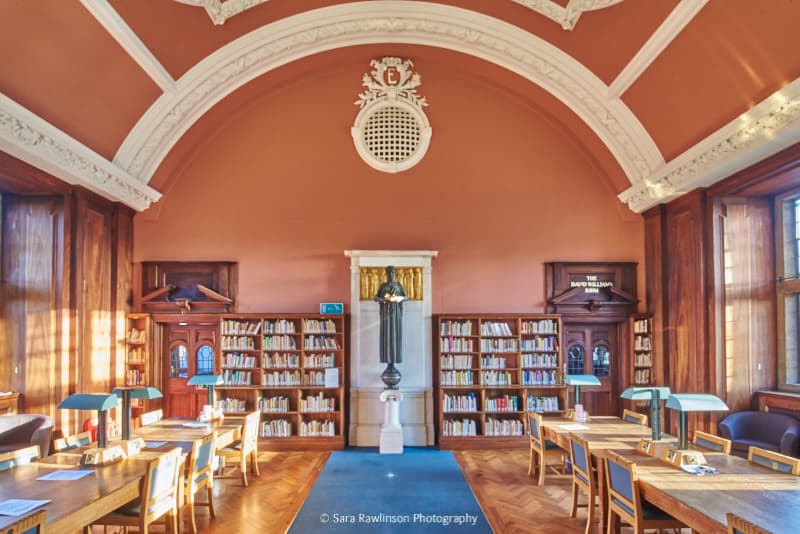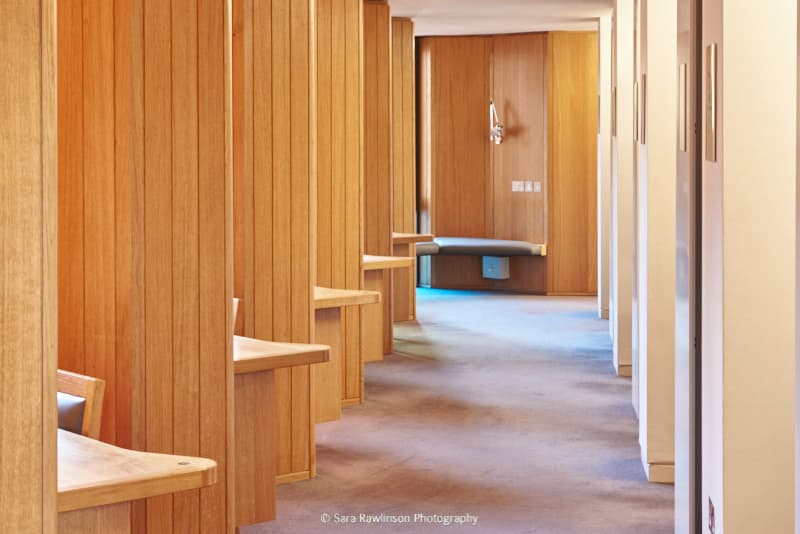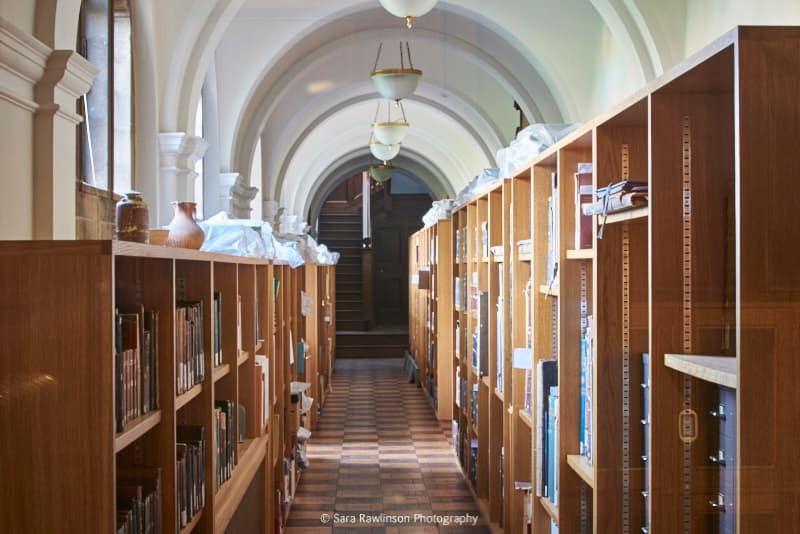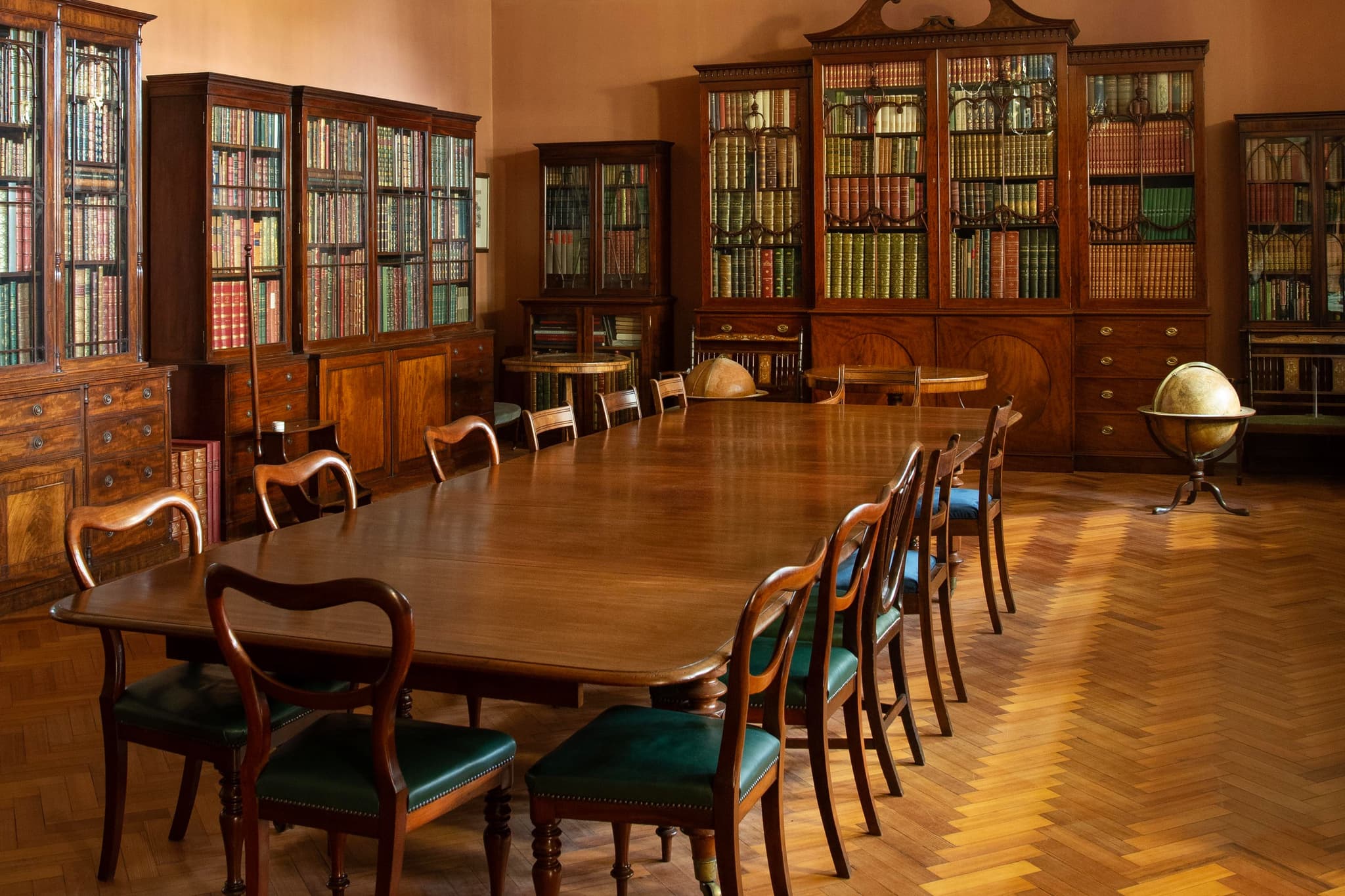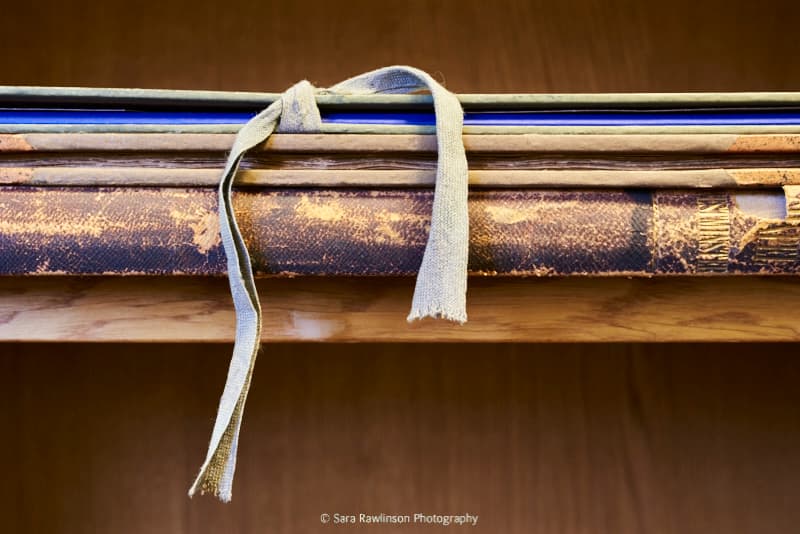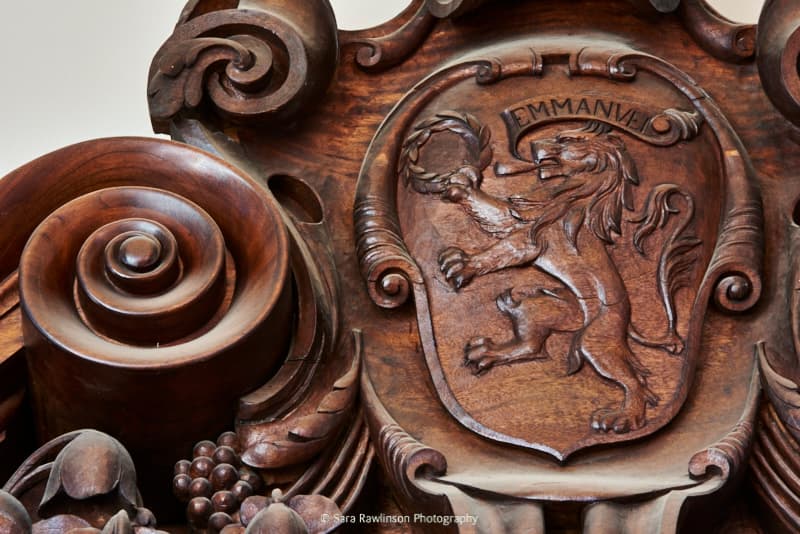The Library
A small collection of books belonging to our Founder, Sir Walter Mildmay, formed the basis of the Emmanuel College Library in 1584. Over the centuries, it has matured into a repository of more than 60,000 open–access books.
The library building is located on the south side of the College site and originally housed a set of lecture rooms. The building was extended and converted to library use in 1930, when the collections were moved from the Old Library (formerly the Elizabethan chapel). A modern extension was added in 1974, but this was demolished and rebuilt in 2010. The College Library and study spaces are open to students, staff and members of the College, 24 hours a day and are accessible via university card. The Special Collections and College Archives are housed within the library.
The College Library is open 24/7 for current College members, and provides a range of different study spaces
Special Collections
We have substantial collections of rare books and manuscripts, pre–1900 printed books, the personal library of William Sancroft and the Graham Watson Collection. The earliest printed book in the collection is an illuminated copy of Cicero's De officiis, printed on vellum, dated 1465. The origin of the rare book collection is a donation of books by the College's Founder, Sir Walter Mildmay. The personal library of William Sancroft (Master 1662–1664) is made up of approx. 7,500 items, the earliest of which dates from the fifteenth century. The Graham Watson Collection was presented to the College by the collector (1908–2002), in 1975. It comprises eighteenth and nineteenth century books with hand–coloured plates.
- Can I access the Special Collections?
- Can I request images of Special Collections material?
Archives
The archives contain a wide range of documents recording the history of the college and its members. Some records survive in unbroken series from the college's foundation in 1584, but the collection also contains many older documents, the earliest of which are mid–twelfth century in date. The archives include academic, administrative and building records, accounts, property deeds, photographs, maps and plans, and records of Masters, Fellows and students. The Douglas Finlay Museum of College Life holds our collection of non–archival memorabilia, and both the museum and the archives welcome donations of college–related material.
- Can I view the College Archives?
- Are there limits on what is available from the Archive?

